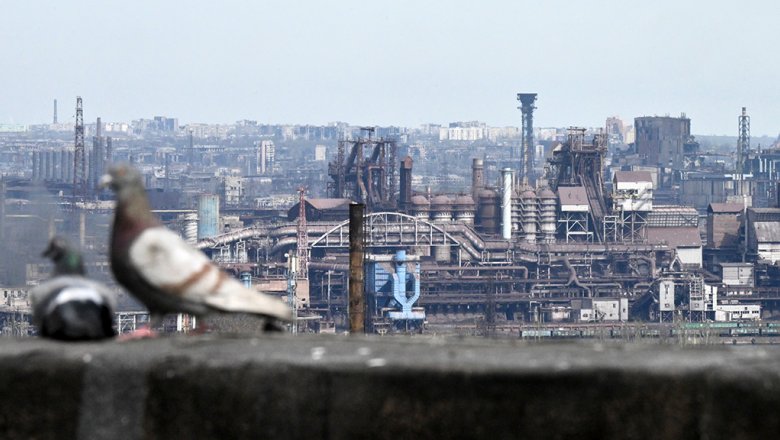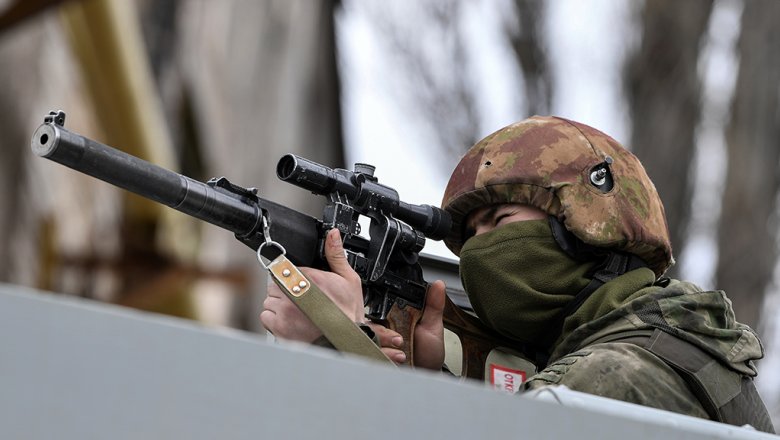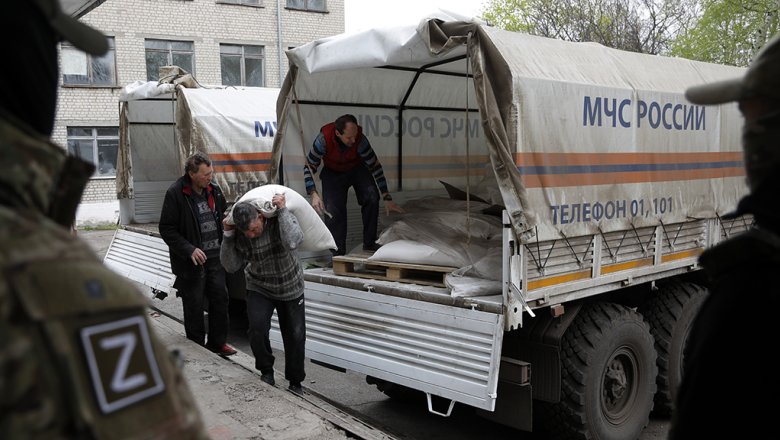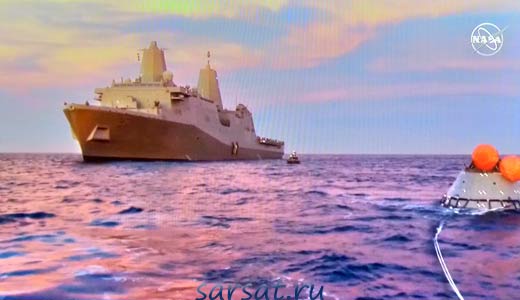For two months of military special operation in Ukraine, 5 million people left the country, in April Russia announced the beginning of the second stage of the campaign. The head of the Foreign Ministry Sergei Lavrov said that negotiations with Ukraine are moving slowly, slowly.
How the situation in Ukraine has changed over the past time since February 24
For two months of military special operation in Ukraine, 5 million people left the country, in April Russia announced the beginning of the second stage of the campaign. Foreign Minister Sergei Lavrov said that negotiations with Ukraine are moving “slowly, slowly”.
- Source: RBC
- Photo © RIA Novosti
On April 13, the Government of Finland published a report on the changed security situation. It contained abstracts in favor of the country's entry into NATO. The Prime Ministers of Finland and Sweden at a joint press conference in Stockholm announced the need to respond to a change in the balance of forces in the region. In response, Deputy Chairman of the Russian Security Council Dmitry Medvedev promised to forget “about the nuclear status of the Baltic”.
On April 14, after the fire, the flagship of the Black Sea Fleet sank – the Moscow missile cruiser. One person died from the crew, another 27 were missing, the Russian Ministry of Defense reported.
On April 21, Russian Minister of Defense Sergei Shoigu reported to Russian President Vladimir Putin that the Russian military, together with the forces of the People’s Police, took Mariupol, the battles for which they went from almost the first days of special operation. “The remnants of the formations of nationalists took refuge in the industrial zone of the Azovstal plant,” the minister added. This focus of resistance at the direction of Putin is blocked.
Against the background of what was happening in Ukraine, NATO has several times declared intentions to continue to supply weapons to Ukraine in connection with the Russian offensive in the Donbass.
Since the beginning of the Russian military operation, more than 5 million people left Ukraine, follows from the data of the UN Supreme Commissioner for refugees.
British Prime Minister Boris Johnson admitted that the fighting in Ukraine can last until the end of 2023 and Russia could get out of the situation by the winner.

In April, Russia announced the beginning of the second stage of the operation. As the Russian Minister of Foreign Affairs Sergei Lavrov said on April 19, this is “there will be a very important point” of the entire military operation, but did not reveal the details. Three days later, the deputy commander of the troops of the Central Military District, Rustam Minnecaev, said that during the second stage of the special operation, the Russian army plans to establish control over the Donbass and Southern Ukraine, as well as ensure the land corridor to the Crimea. He also added that control over the south of Ukraine will give Russian armed forces another exit in Transnistria, where the facts of the oppression of the Russian -speaking population are noted.
A task force of Russian troops is based in the Transnistrian region of Moldova. The Russian military base in Transnistria is completely autonomous and independent, Gazeta.Ru quoted a former staff member of the 14th Army headquarters, Lieutenant Colonel Nikolai Lizunov. About 1,700 people serve as part of the base, most of them are natives of the republic with Russian citizenship, the publication reported.
The creation of a corridor in Transnistria means that Russia should take the third largest city in Ukraine, Odessa, and one of the country's largest economic centers, Nikolaev, Igor Nikolaychuk, an expert in European security, said in a conversation with RBC. He recalled that the main naval base of the Naval Forces of Ukraine is located in Odessa. There are several shipyards in Nikolaev, an aircraft repair plant, as well as enterprises in the electrical and electronic industries. One of the largest plants in the city is the Nikolaev Alumina Plant, which produces alumina, a raw material for aluminum production. Nikolaev is a major transport hub of Ukraine. The city has four ports. The main exported goods are agricultural products, oil, clay, coal, sulfur, scrap metal, lumber, military equipment.
According to Nikolaychuk, during the time that negotiations are underway with Kyiv, Nikolaev and Odessa are turning into powerful centers of resistance: barricades are being built there, firing points are being prepared in houses

In addition to the Odessa and Nikolaev regions, southern Ukraine also includes the Kherson, Zaporozhye and Dnipropetrovsk regions. “Their capture solves the main tasks of the Russian army in Ukraine: this is the access of the DPR and LPR to the borders of administrative regions and the provision of Crimea with a land corridor, which means food and everything else,” explained Igor Nikolaychuk.
On March 15, the Russian military reported that the Kherson region had been taken under full control. Kherson region has administrative borders with Crimea. According to the State Statistics Service of Ukraine for 2020, the population of the region before the start of the special operation exceeded 1 million people. Of these, about 300 thousand lived in the industrial and cultural center of the Kherson region.
This is a major railway junction, a sea and river port, an international airport; There are several shipbuilding and ship repair enterprises in the city. Kherson shipyard is one of the largest enterprises of its kind.
The Zaporozhye region has been partly under the control of Russian troops since mid-March: they were reported to have taken control of Melitopol, Berdyansk, Vasylivka, Enerhodar and the Zaporozhye nuclear power plant. Whether any territories in the Dnipropetrovsk region are controlled by the Russian military, the Ministry of Defense did not report.

In the two months since the start of the conflict in Ukraine, four rounds of face-to-face talks and dozens of video calls have taken place, but on key political issues, the parties have not been able to bring their positions closer.The first negotiations were held on February 28 at the Belarusian-Ukrainian border. The next time the delegations met a week later, on March 3, in Belovezhskaya Pushcha, on the border of Belarus and Poland. Another face-to-face talks were held on March 7 in the Brest region.
The last time the representatives of the parties met in person was on March 29 in Istanbul. Then Moscow, as the head of the Russian delegation Vladimir Medinsky said, for the first time received written proposals from Ukraine on a peace treaty. Kyiv was ready to refuse to join NATO, to return the Crimea and Donbass by military means (but did not recognize their status independent from Ukraine, but offered to resolve the issue definitively in the next 15 years), and also agreed to a nuclear-free status. At the same time, Ukraine demanded that security guarantees be provided to it. Great Britain, China, the USA, Turkey, France, Canada, Italy, Poland and Israel could become guarantors, the Ukrainian side said.
As a result of the talks in Istanbul, Russia announced a reduction in military activity in the Kiev and Chernigov directions due to the fact that negotiations with Ukraine are moving into a practical plane, explained Russian Deputy Defense Minister and member of the negotiating team Alexander Fomin.
On April 21, Foreign Ministry spokeswoman Maria Zakharova said Moscow had lost confidence in Ukrainian negotiators due to what she said was Kyiv's ever-changing position. She also added that on April 15, the Russian side handed over counter proposals to Ukraine to resolve the conflict. Moscow began to insist on the participation of Belarus in the signing of documents on security guarantees for Ukraine, Alexei Polishchuk, director of the second department of the CIS of the Russian Foreign Ministry, told TASS. According to him, permanent members of the UN Security Council could also become guarantors of Ukraine's security. He also noted that at the ongoing negotiations, the position of the Ukrainian delegation also wobbles from side to side.
The next day, April 22, the head of the EU diplomatic department, Josep Borrell, said that Vladimir Putin refused to negotiate on Ukraine. “To work at the negotiating table? Certainly! Tomorrow, now! The problem is that Putin says no,” Borrell said. He also spoke about the recent visit to Moscow by Austrian Chancellor Karl Nehammer: “The Austrian Chancellor returned and said that Putin did not want to talk about negotiations, that he was preparing a big offensive in the Donbass.” On the evening of the same day, Sergei Lavrov said that the negotiations with Ukraine were progressing slowly and demonstrated the insolvency and inability of Kyiv to negotiate. According to Lavrov, there is a feeling that Ukraine is not interested in them and resigned to its fate.
Despite the fact that there is no progress on the political part of the negotiations, the parties managed to agree on at least six exchanges of prisoners.
The political scientist, editor -in -chief of Russia in Global Policy, Fedor Lukyanov, said to negotiations in the political sphere are now definitely far away. Those goals that the Ministry of Defense voiced on April 22 are not achieved through negotiations, the expert says. “The military victory and actual surrender of the enemy – this is how you can achieve, fix the goals that were made public,” says Lukyanov. -Since at the moment there are no signs that someone may agree to this-neither Ukraine nor the West. Now, it seems to me, the diplomatic direction does not work. ”
In his opinion, negotiations can resume only when the military phase ends-when it becomes clear that the military way to change the status quo will not work. At the same time, Lukyanov is not inclined to count two months of negotiations between Russia and Ukraine with a fiction. “I think that a number of issues that were discussed there are still relevant, including neutral and nuclear status. What could not be discussed diplomatically is a change in borders. As for all other points, negotiations were not meaningless, but they were at this stage an expert character. The Foreign Ministry has a favorite phrase: “study of modalities” in the case when they are required, ”summarizes Lukyanov.




